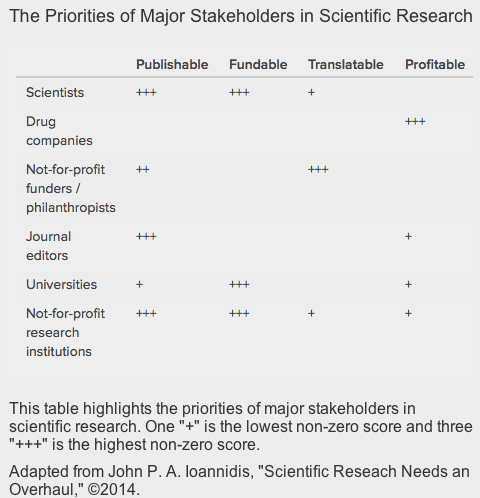Questions 1-5 are based on the following
passage.
This passage is excerpted from John P. A. Ioannidis, “Scientific Research Needs an Overhaul,” ©2014 by Scientific American.
Earlier this year a series of papers in The Lancet reported
that 85 percent of the $265 billion spent each year on medical
research is wasted. This is not because of fraud, although it is
true that retractions are on the rise. Instead, it is because too
5 often absolutely nothing happens after initial results of a
study are published. No follow-up investigations ensue to
replicate or expand on a discovery. No one uses the findings
to build new technologies.
The problem is not just what happens after publication—
10 scientists often have trouble choosing the right questions and
properly designing studies to answer them. Too many
neuroscience studies test too few subjects to arrive at firm
conclusions. Researchers publish reports on hundreds of
treatments for diseases that work in animal models but not in
15 humans. Drug companies find themselves unable to
reproduce promising drug targets published by the best
academic institutions. The growing recognition that
something has gone awry in the laboratory has led to calls
for, as one might guess, more research on research (aka,
20 meta-research)—attempts to find protocols that ensure that
peer-reviewed studies are, in fact, valid.
It will take a concerted effort by scientists and other
stakeholders to fix this problem. We need to identify and
correct system-level flaws that too often lead us astray. This
25 is exactly the goal of a new center at Stanford University (the
Meta-Research Innovation Center at Stanford), which will
seek to study research practices and how these can be
optimized. It will examine the best means of designing
research protocols and agendas to ensure that the results are
30 not dead ends but rather that they pave a path forward.
The center will do so by exploring what are the best ways
to make scientific investigation more reliable and efficient.
For example, there is a lot of interest on collaborative team
science, study registration, stronger study designs and
35 statistical tools, and better peer review, along with making
scientific data, analyses and protocols widely available so
that others can replicate experiments, thereby fostering trust
in the conclusions of those studies. Reproducing other
scientists’ analyses or replicating their results has too often in
40 the past been looked down on with a kind of “me-too”
derision that would waste resources—but often they may
help avoid false leads that would have been even more
wasteful.